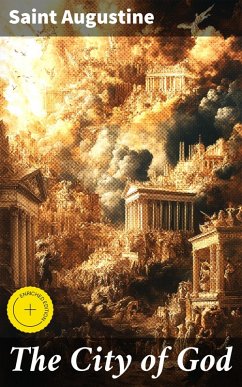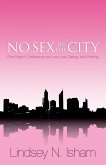In "The City of God," Saint Augustine meticulously juxtaposes the earthly city, characterized by human vice and temporal power, against the celestial city, which embodies divine grace and eternal truth. Written in response to the sack of Rome in 410 AD, this monumental work reflects Augustine'Äôs profound philosophical and theological inquiry into the nature of society, morality, and divine providence. The text seamlessly intertwines elements of rhetoric, narrative, and exegesis, demonstrating Augustine's mastery of Latin prose while articulating the Christian worldview amid a turbulent historical context fraught with pagan criticism and existential dread. Saint Augustine, one of the foremost early Christian thinkers and theologians, lived through significant societal upheaval, which undoubtedly shaped his reflections in this work. His diverse background'Äîranging from his education in rhetoric to his conversion to Christianity later in life'Äîinfused him with a unique perspective on the interplay between faith and reason, politics and spirituality. The challenges of his time compelled Augustine to address the doubts surrounding the efficacy of Christianity in a world facing chaos, making his insights not only relevant but prophetic. "The City of God" remains an essential read for anyone seeking to understand the foundations of Western thought. It invites readers to contemplate the relationship between faith and society, urging them to consider their own place within the spiritual and secular realms. As a timeless treatise on the human condition and divine aspiration, Augustine's work is indispensable for scholars, theologians, and general readers alike.
Dieser Download kann aus rechtlichen Gründen nur mit Rechnungsadresse in A, B, BG, CY, CZ, D, DK, EW, E, FIN, F, GR, H, IRL, I, LT, L, LR, M, NL, PL, P, R, S, SLO, SK ausgeliefert werden.









